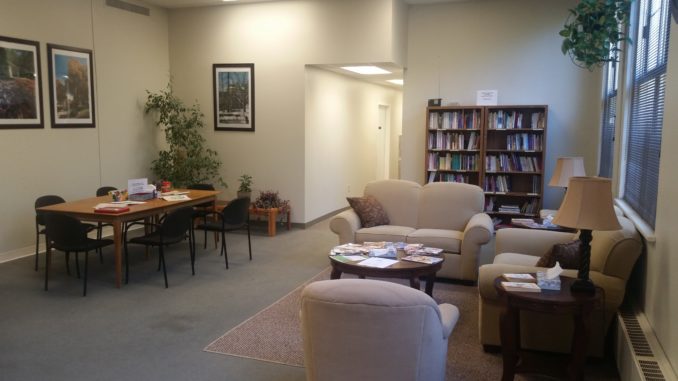
In light of the COVID-19 pandemic, a lot of changes have been made at Truman State University. One thing that has not changed, however, is the dedication of University Counseling Services to its students.
Joe Hamilton, assistant director, said that although the counseling center can no longer provide in-person counseling services, all current clients and newcomers can speak with counselors via telephone or Zoom. These services are meant to mimic in-person sessions. Hamilton said there are more openings than ever and that now is a great time to give UCS a try. The counseling center can only serve students from Missouri currently due to licensure laws, but Hamilton said that the counseling center encourages students from other states to reach out so that the center can help provide referrals to local services.
UCS offers appointments from 8 a.m. to 5 p.m. on weekdays, as well as an after-hours phone line as needed. Appointments must be set up through phone call, and more information regarding services and how to make appointments can be found on UCS’s website.
While the counseling center prefers that students contact the national crisis hotline after hours because this allows callers to receive local help in case of an emergency, Hamilton said that, in non-emergency situations, the after-hours counselor is still available via the local dispatcher.
Appointments must be set up through phone call, and more information regarding services and how to make appointments can be found on UCS’s website.
Beyond UCS, Hamilton described a variety of resources students can utilize for their mental health. Some can be found on the UCS website, but Hamilton also suggests others such as Taoconnect, the Active Minds Website and the Sanvello app.
In addition to finding resources to take care of their mental health, one of the issues many students face is difficulty maintaining structure without having a routine formed by in-person class meetings. Hamilton suggests students form a regular schedule by evaluating what they must do on a regular basis and could also ask for help from those in the household who still have a routine. Another potential solution could be to change one’s way of thinking about a daily schedule.
“Switch to being more task-based and think about what sort of tasks do [you] need to complete for [your] classes,” Hamilton said.
Hamilton said that making a plan for when those tasks should be completed and giving oneself a reward after completing those tasks can be helpful in creating structure.
In a time where it is difficult to find motivation to complete coursework, it is important to not fall into what Hamilton called “unhealthy routines,” such as doing too many activities that could detract from schoolwork or staying up all night and sleeping all day.
“It’s more important than ever to be making sure that we’re taking care of our mental health,” Hamilton said. “Obviously, this is a time of high anxiety for everyone and so it’s important for us — all of us — to take care of our mental health and do good self-care and do whatever we can to be making sure that we’re taking some time for ourselves.”
With that in mind, Hamilton said it is important to be sure to relax and form a sense of stability amidst all of the new information we receive on a daily basis. Finally, Hamilton emphasized the need to remember we are all going through this pandemic together: “Be kind and caring to our loved ones and our friends because we all need to be supporting each other through this difficult time.”
